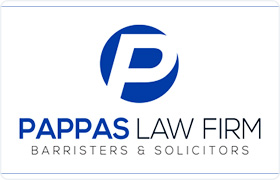Toronto Divorce & Family Law Lawyer, Ontario, page 4
Sponsored Law Firm
-
 x
x

Click For More Info:
-
Pappas Law Firm
3100 Steeles Ave W Suite 602 Vaughan, ON L4K 3R1» view mapDivorce & Family Pay No Legal Fees Until You Get Paid
Pappas Law Firm specializes in civil litigation and concentrates on serious personal injury claims.
800-953-0441
Not enough matches for Toronto Divorce & Family Law lawyer.
Below are all Toronto lawyers.
Graham Clare Siemens Erion
Merger & Acquisition, Corporate
Status: In Good Standing Licensed: 13 Years
Carol Anne Hansell
Corporate, Corporate Governance, Government Agencies
Status: In Good Standing Licensed: 16 Years
Frank John Cesario
Lawsuit & Dispute, Consumer Rights, Real Estate, Employment, Health Care
Status: In Good Standing Licensed: 26 Years
Kristian Borg-Olivier
Class Action, Corporate, Crops, Directors & Officers
Status: In Good Standing Licensed: 24 Years
 George Pappas Vaughan, ON
George Pappas Vaughan, ON AboutPappas Law Firm
AboutPappas Law Firm Practice AreasExpertise
Practice AreasExpertise
